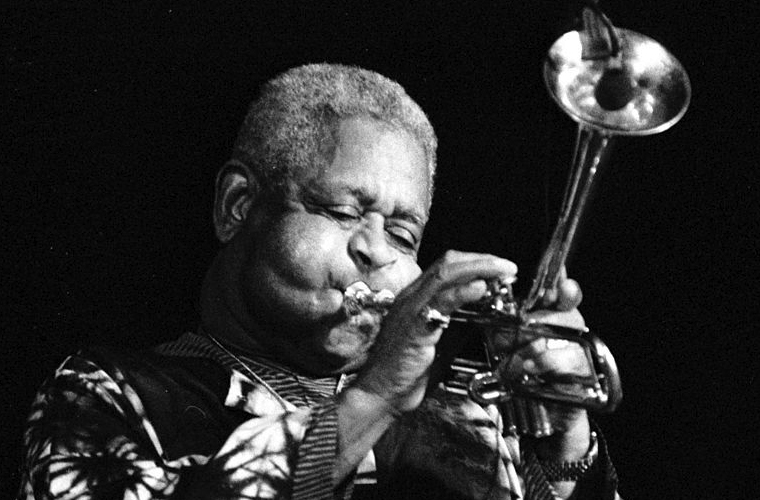Dizzy Gillespie, born John Birks Gillespie on October 21, 1917, was an American jazz trumpeter, bandleader, composer, and singer. He is widely regarded as one of the greatest jazz musicians of all time and played a significant role in the development of bebop, a style of jazz characterized by its fast tempo, complex harmonies, and improvisation. Gillespie’s early life was marked by his passion for music. Growing up in Cheraw, South Carolina, he began playing the piano at a young age and later switched to the trumpet.
He quickly mastered the instrument and showed immense talent, attracting attention from local musicians and audiences alike. In the 1930s, Gillespie moved to New York City, where he immersed himself in the vibrant jazz scene. He played with various bands and musicians, including Teddy Hill, Cab Calloway, and Ella Fitzgerald. It was during this time that he developed his unique style, characterized by his virtuosic technique, innovative use of harmonies, and his signature bent trumpet bell.
Gillespie’s breakthrough came in the 1940s when he co-founded the bebop movement alongside fellow jazz legends Charlie Parker, Thelonious Monk, and Kenny Clarke. Bebop revolutionized jazz by introducing complex melodies and chord progressions, challenging traditional conventions of swing music. Gillespie’s compositions, such as “A Night in Tunisia” and “Salt Peanuts,” became iconic bebop standards and showcased his exceptional talent as a composer. Not only was Gillespie a masterful musician, but he was also a charismatic bandleader. He formed his own big band in the late 1940s, known as the Dizzy Gillespie Orchestra. The band featured some of the most talented musicians of the time, including saxophonist John Coltrane and pianist Lalo Schifrin. Under Gillespie’s leadership, the orchestra became renowned for its tight arrangements, intricate harmonies, and high-energy performances.
Throughout his career, Gillespie collaborated with numerous jazz luminaries, including Duke Ellington, Count Basie, and Stan Getz. He also ventured into Latin jazz, incorporating Afro-Cuban rhythms into his music. His collaboration with Cuban percussionist Chano Pozo resulted in the groundbreaking composition “Manteca,” which fused jazz and Afro-Cuban elements and became a classic in both genres. Beyond his musical contributions, Gillespie was also an advocate for social justice. He used his platform to speak out against racial discrimination and played a vital role in breaking down racial barriers in the music industry. His influence extended beyond the United States, as he embarked on international tours and introduced jazz to audiences around the world.
Gillespie’s impact on jazz cannot be overstated. His innovative approach to music pushed the boundaries of the genre and inspired generations of musicians. His virtuosity on the trumpet, combined with his infectious stage presence, made him a beloved figure in the jazz community. In recognition of his contributions to music, Gillespie received numerous accolades throughout his career. He was awarded the Grammy Lifetime Achievement Award in 1990 and received honorary doctorates from several prestigious institutions. His influence continues to resonate today, with countless musicians citing him as a major inspiration.
Dizzy Gillespie passed away on January 6, 1993, leaving behind a rich legacy that continues to shape the world of jazz. His dedication to his craft, his commitment to pushing artistic boundaries, and his unwavering passion for music make him a true pioneer of jazz. As we celebrate his life and contributions, let us remember Dizzy Gillespie as an icon whose impact will be felt for generations to come.

